- About
- Topics
- Picks
- Audio
- Story
- In-Depth
- Opinion
- News
- Donate
- Signup for our newsletterOur Editors' Best Picks.Send
Read, Debate: Engage.
| February 23, 2022 | |
|---|---|
| topic: | Refugees and Asylum |
| tags: | #Palestine, #Jordan, #Israel, #refugees, #citizenship |
| located: | Jordan, Israel |
| by: | Katarzyna Rybarczyk |
With over 7 million Palestinians having fled their native land, the Palestinian refugee crisis is at the core of the Palestinian-Israeli conflict. And while leaving Palestine might protect people from armed conflict, it often condemns them to living in refugee camps in degrading conditions.
To raise awareness about the numerous challenges that Palestinian refugees face, FairPlanet visited the Al-Wehdat refugee camp in Jordan, the country hosting the largest number of them.
Al-Wehdat was established in 1955 to accommodate Palestinians fleeing the 1948 war that broke out during the establishment of Israel.
Initially, refugees in Al-Wehdat lived in tents, but over the years its residents started building more durable shelters. The camp has expanded so significantly that it ultimately became a permanent urban dwelling centre.
At first glance, Al-Wehdat is not much different from the neighbourhoods surrounding it. And yet, a walk through the area, with some streets so narrow that even motorbikes cannot pass through them, reveals problems such as overcrowding, poverty and ineffective waste management.
Jordan, granting some Palestinians full Jordanian citizenship, is considered to be one of the most refugee-welcoming countries in the Middle East. And yet, Palestinians who originated in the Gaza Strip receive only temporary Jordanian passports that are valid for two years. Consequently, they find themselves living in Jordan with a precarious legal status, limited employment opportunities and restricted access to state services.
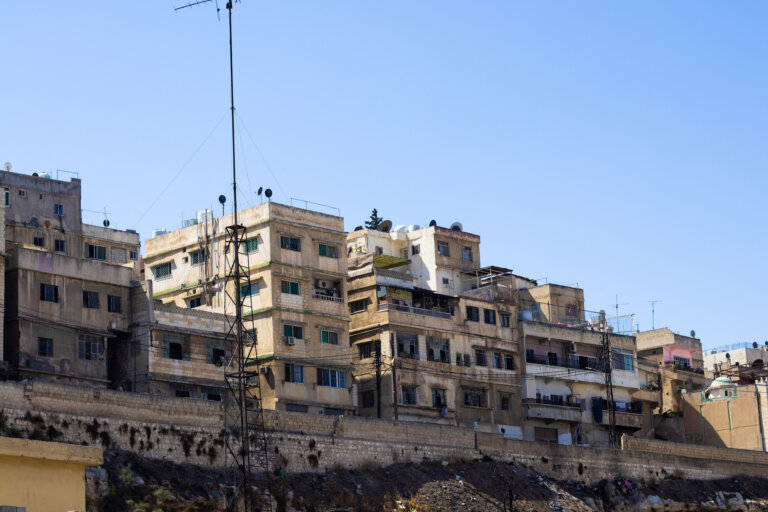
Al-Wehdat is a maze of densely stacked concrete houses that struggle to accommodate numerous families living in each building. Overcrowding in the camp affects the living conditions of refugees to the point where families of six or more often have to share two rooms.
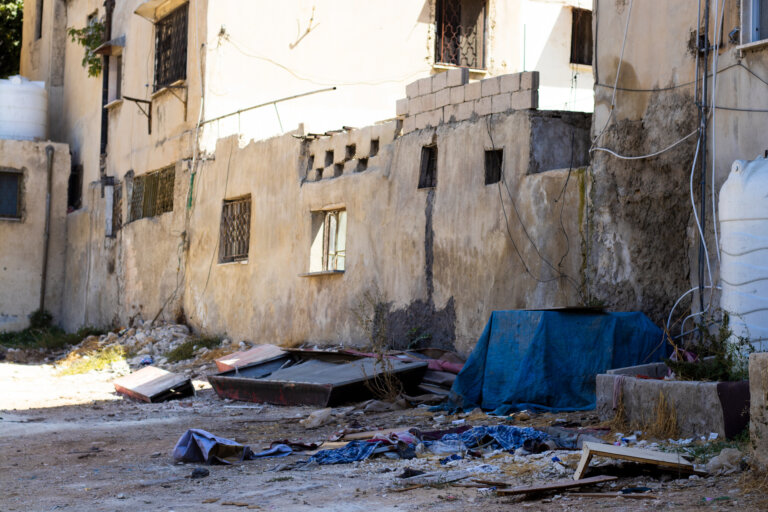
The camp is full of run-down buildings and abandoned properties. Those who do not have enough money to pay rent find shelter in them and make use of furniture that others discard. In addition to the daily risk of these constructions collapsing, those who use them often have to sleep on piles of garbage.
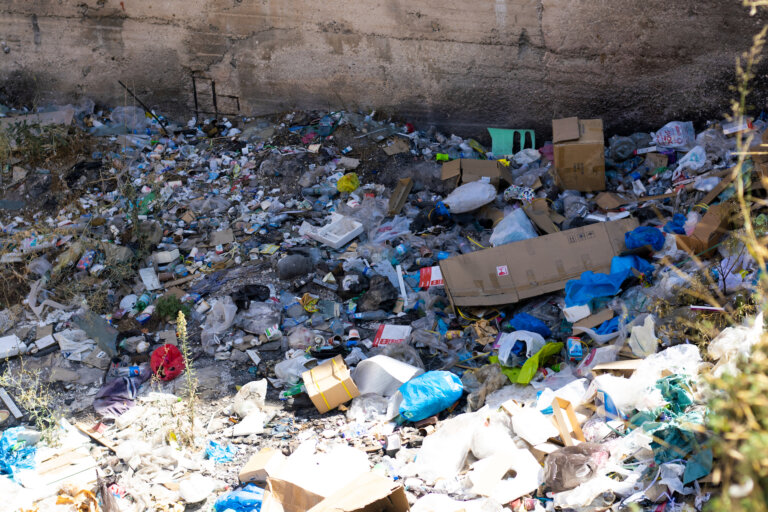
In Al-Wehdat, waste management operates on an informal basis with garbage collectors picking up recyclable waste and later selling it to organisations that process it further. This system provides income opportunities for poor individuals, but there are not enough workers to keep up with the amount of waste generated in the camp.
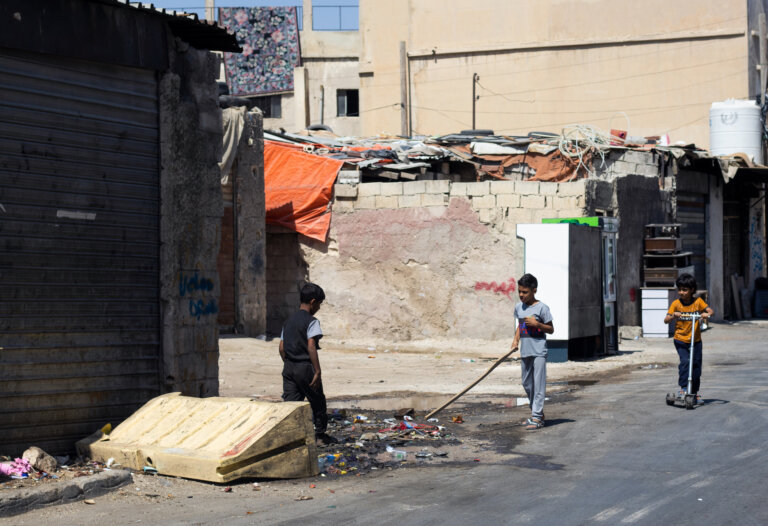
As families in Al-Wehdat often have to prioritise their expenses and cannot afford to buy toys, many children view waste as something they can play with. There are no green, open spaces in the camp, so the streets filled with waste are the only setting where they can spend time outdoors.
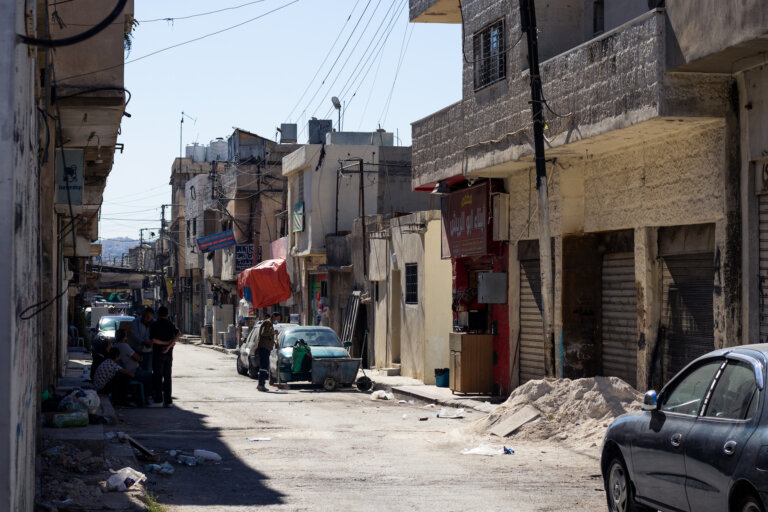
The camp is not surrounded by fences, and although much poorer than other parts of Amman, over the years, Al-Wehdat became a part of the city’s urban landscape. Those living there are allowed to leave and reenter the camp throughout the day, but many do not have the need to do so.
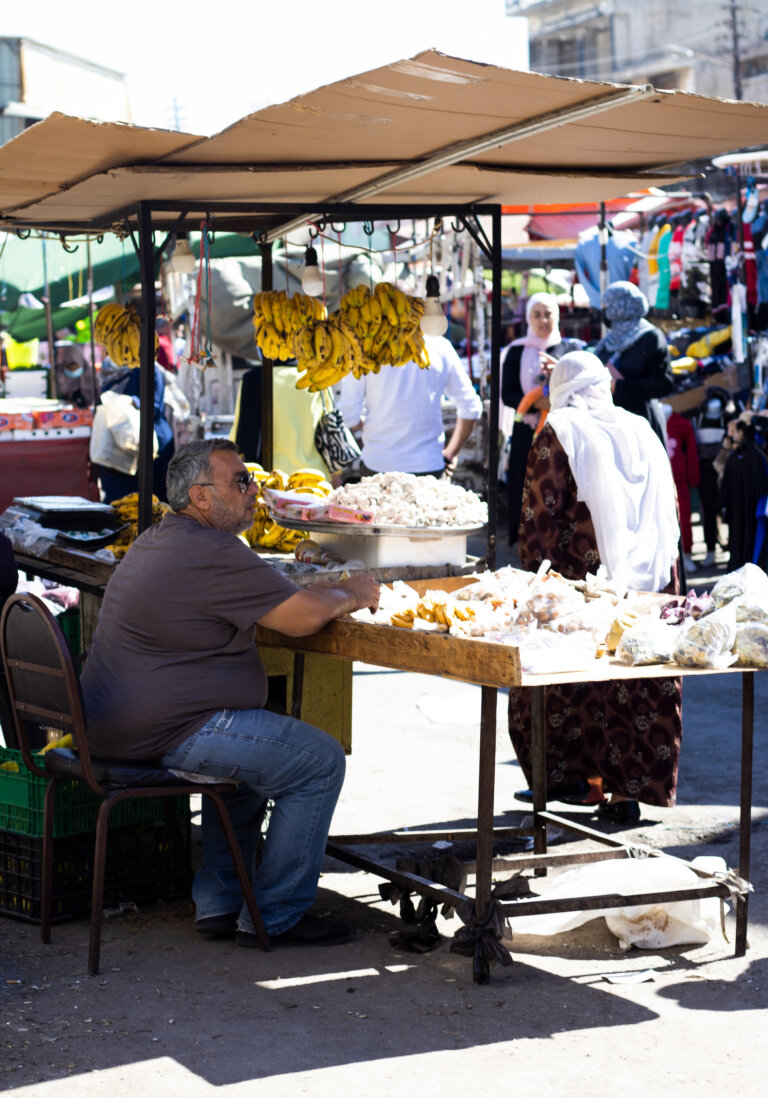
Since the establishment of Al-Wehdat, thousands of shops and enterprises have opened so refugees can purchase goods and use services they need without having to go outside of the camp’s area. Local markets are abundant in fresh fruit and vegetables, meat, clothes, spices, handmade art and other products for daily use.
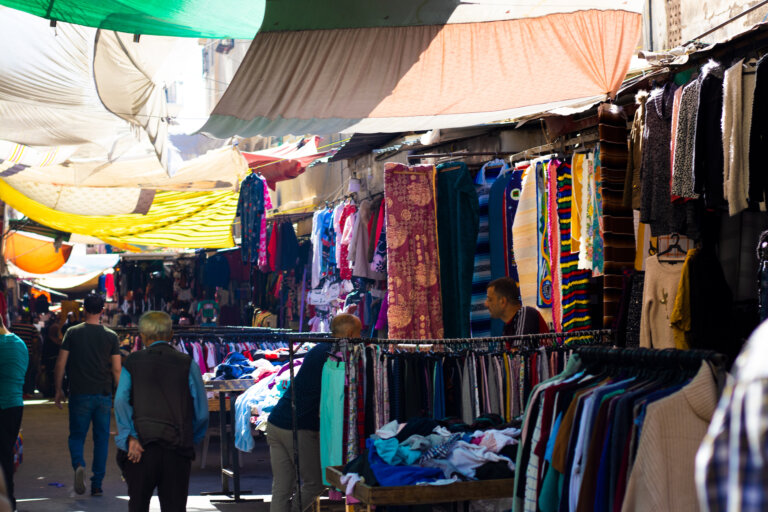
Selling clothes, fabrics and food products is a common income source for those living in Al-Wehdat. Open markets serve another function, too, however: they are also a place where people come together to enjoy conversations while children walk around freely and play with their peers.
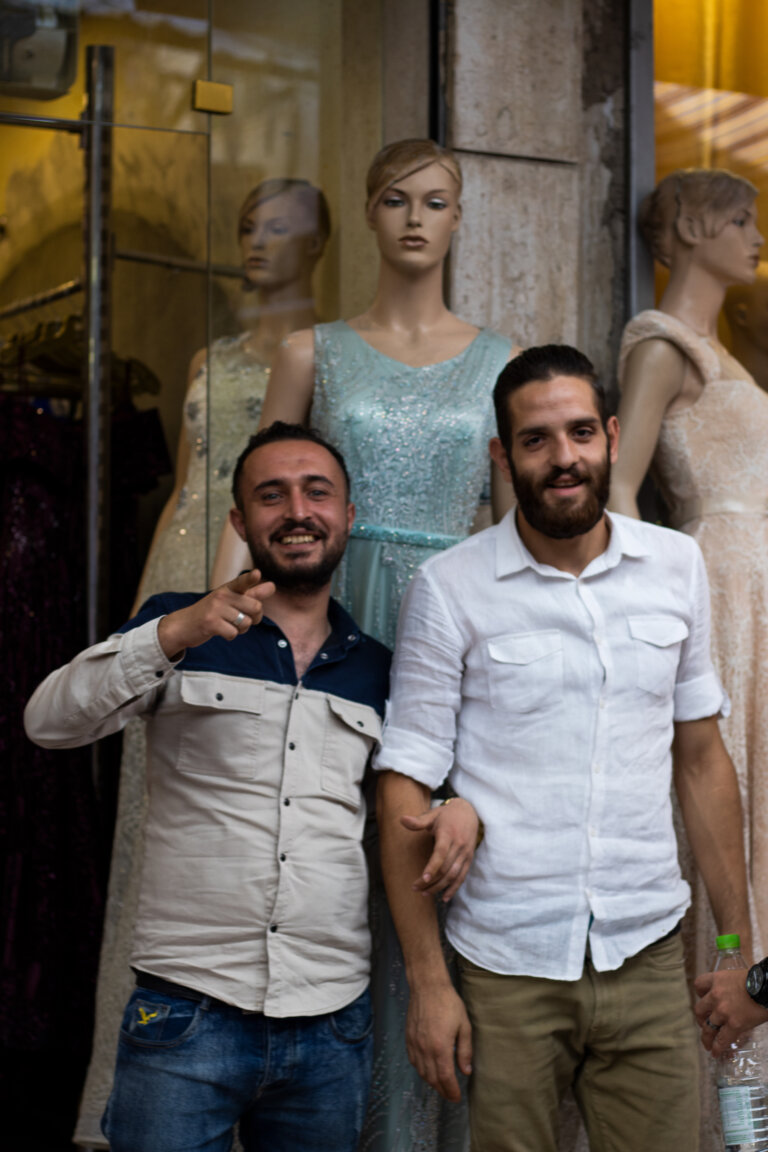
Murad and Khaled are two friends who run a shop with women’s formal dresses at a bazaar in Al-Wehdat. "We like football and we support the Al-Wehdat team," they told FairPlanet’s correspondent. The Al-Wehdat football club was established by Palestinian refugees and is based in the camp.
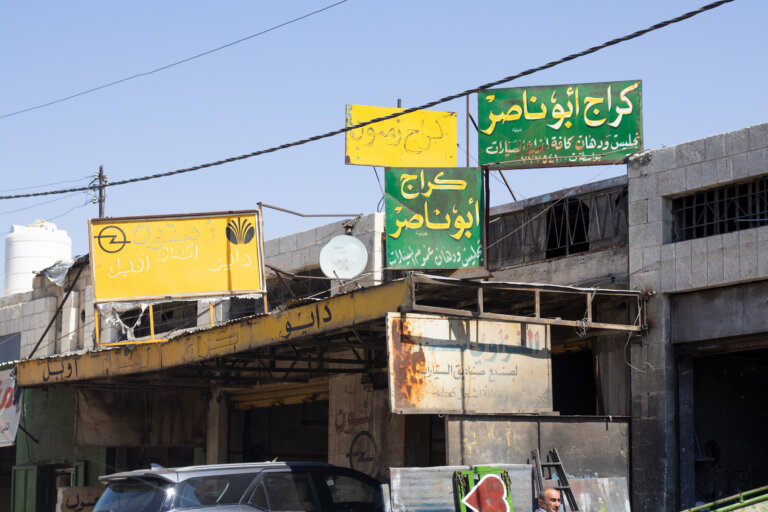
"Abu Nasser garage for car paint, for Daewoo and Opel only," reads a sign over a car garage. Just like market stalls, car garages are present in every corner of the camp. Entrepreneurial enterprises by refugees who seek to establish their own businesses are prevalent at Al Wehdat.
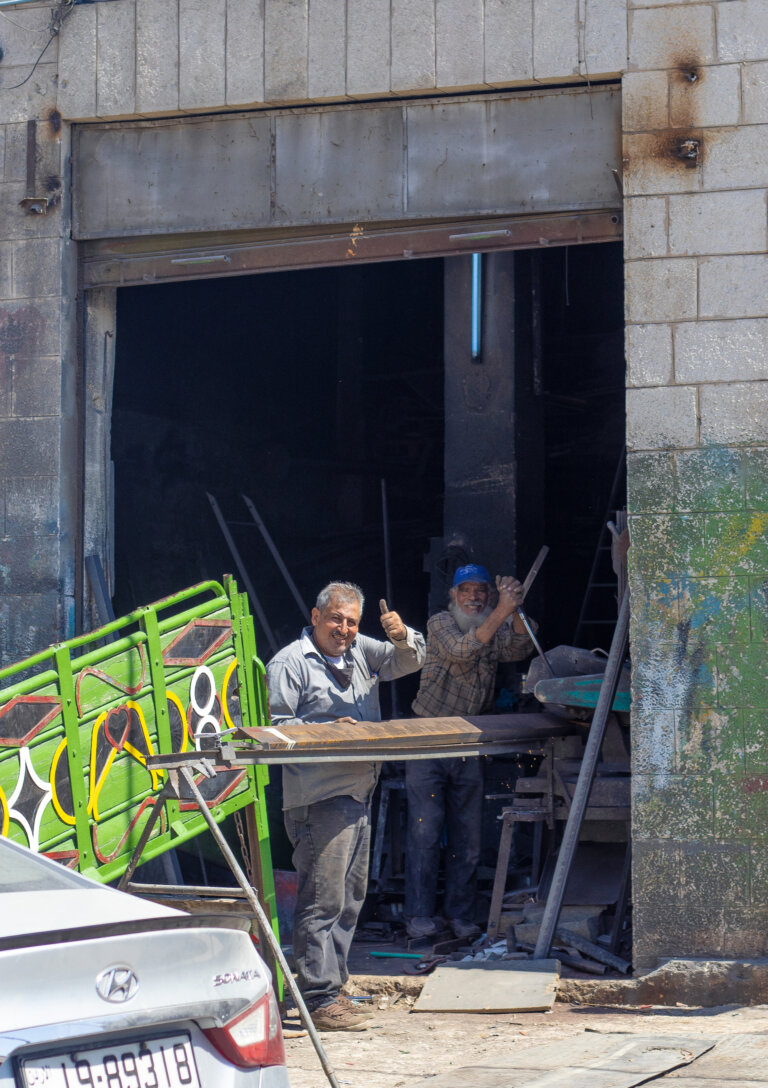
Ziad and Hassan specialise in metalwork. They primarily offer services to the automotive industry and make custom car parts. They said that their fathers used to hold the same professions and taught them the trade. Now, they do the same with their sons in order to continue passing the skills down through the generations.
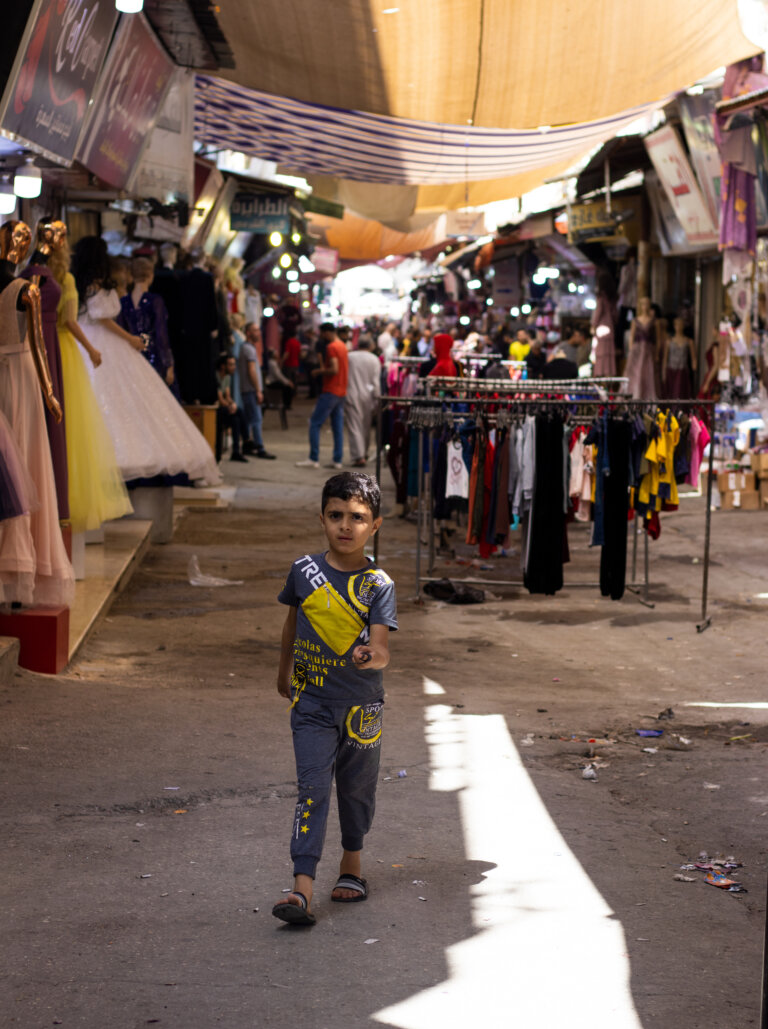
It is not unusual for children living in the camp to help out in their parents' small businesses. One day, when they grow up, they will become responsible for running them. Many who live in Al-Wehdat find stable employment to be more valuable than formal education, and children play a part in managing family businesses from a very young age.
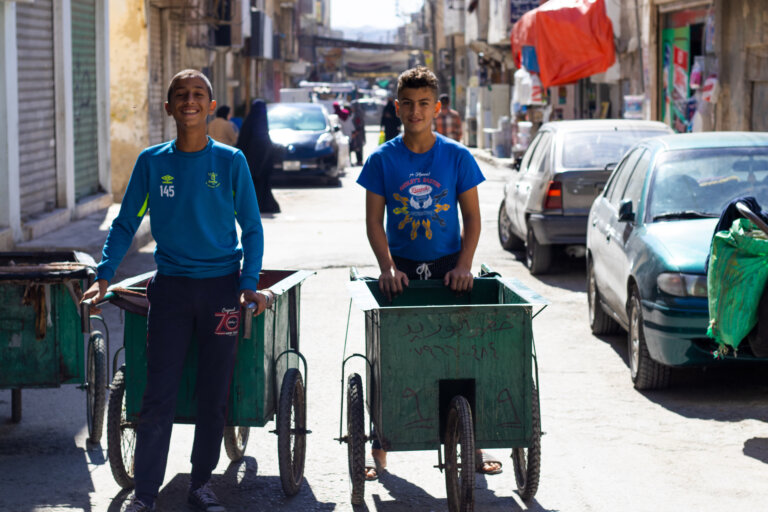
Teenage boys spend their days walking around the camp with carts they use to transport heavy items, display products they sell and, as a form of entertainment, to give each other rides. "Can you take a picture where we look cool?" two boys asked FairPlanet’s correspondent.
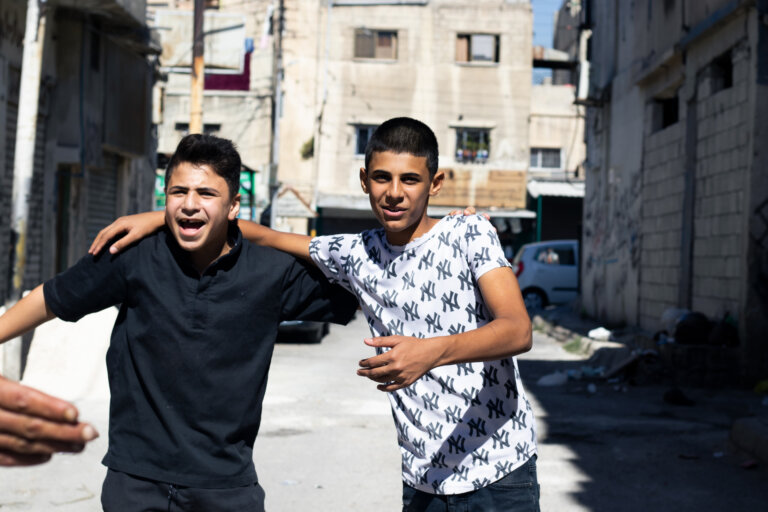
There is a palpable sense of community and brotherhood between young refugees in Al-Wehdat. Having a group of friends they can rely on and go through life with makes living in the camp more enjoyable despite the poor living conditions.
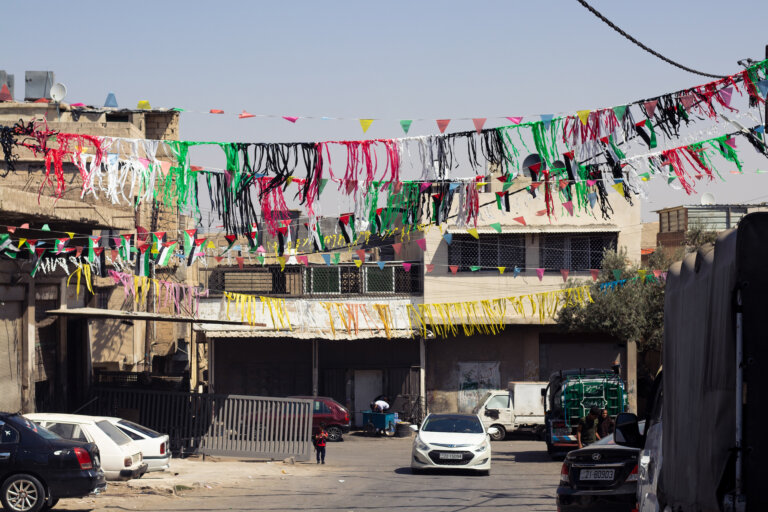
In the streets of the camp, both Palestinian and Jordanian flags can be seen as a sign of strong ties between the two nations. Despite a certain degree of marginalisation inherent to living in an urban refugee camp, the majority of people FairPlanet spoke to in Al-Wehdat seemed happy and proud of the community they have created.
Luckily, Palestinian refugees in Jordan do not have to worry that war will once again destroy their homes. And yet, great progress still needs to be made to improve their living conditions, protect their human and civil rights and secure their status as full citizens.
Images by Katarzyna Rybarczyk.
By copying the embed code below, you agree to adhere to our republishing guidelines.
